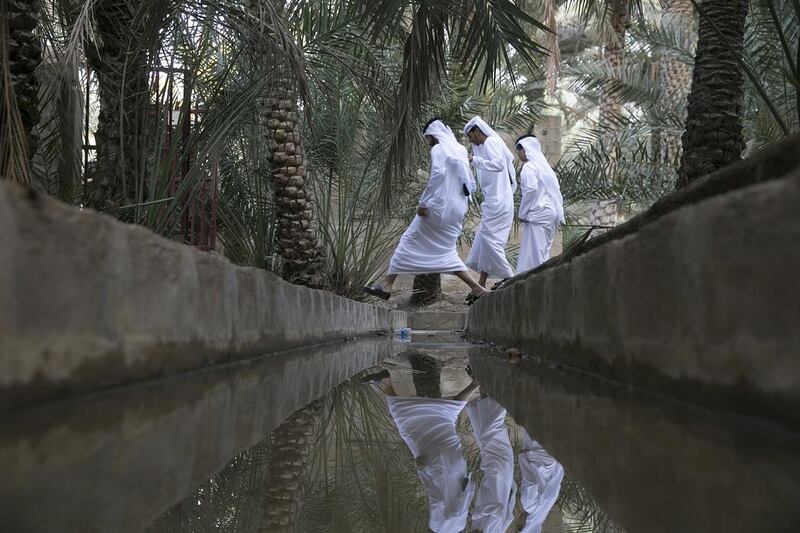The Middle East and North Africa region accounts for about nine per cent of the planet’s geographic area, has roughly five per cent of the world’s population and just one per cent of the world’s supply of freshwater. Freshwater resource stress has grown in the region in the past 25-50 years and has become more acute since 2011.
Lebanon is endowed with the highest annual average precipitation of about 800mm, while Egypt receives the least, 50mm. Most of the region is arid. Annual rainfall, and consequently the distribution of agricultural land, varies considerably across the region. So does the distribution of hydrocarbon wealth, which helps determine a country’s ability to augment freshwater supply with desalinated water. The most water-scarce Arab countries are oil exporters, so they can afford to desalinate water, but other water-stressed countries don’t have the economic resources to do so on a large scale.
Climate is a big enough challenge for and constraint on fresh water availability in Arab countries. Geopolitical factors have compounded this situation further. More than half of the Arab region’s freshwater supply comes from a resource that is shared with other countries and originates outside the region. For example, Iraq and Syria share the Euphrates-Tigris river system, mainly with Turkey, where this trans-boundary freshwater basin originates. Egypt and Sudan are riparian countries of the Nile River system, which originates in Ethiopia and Tanzania. As a result of geographic interdependencies, the quality, quantity and security of the region’s freshwater supply do not depend on natural availability alone. Nor do they depend on water’s availability and the degree of efficient resource management within each Arab country. In Syria, Iraq, Egypt and Jordan, for example, which rely heavily on trans-boundary freshwater that originates outside their borders, supply is affected by measures taken in upstream countries. Absent full cooperation among the riparian countries, the supply of the more dependent and vulnerable countries can be put at grave risk or substantially decreased.
Geographic freshwater interdependency is not unique to the Arab region. However, military conflicts in the Middle East and the grim record of international water law application as far as Arab water resources and security have been concerned has left the region’s extraterritorial hydrological dependency at the mercy of geopolitical agendas. For example, since the completion of Turkey’s Great Anatolian Project and associated water infrastructural developments on the Euphrates-Tigris system, Iraq and Syria have experienced significant reductions in their freshwater supplies. Some publicised estimates of the expected water loss for these two countries had ranged from 30 to 60 per cent for Syria and 70 to 90 per cent for Iraq. If the actual loss for each country has in fact been even half of the upper limit of those figures, then fundamental reasons for economic insecurity and instability have become more entrenched.
As military conflicts have increasingly engulfed different parts of the region, military and border security have taken primacy over other issues including access to, and the protection and sustainable management of, precious trans-boundary water resources. In Syria, transboundary water security has lost ground as a fundamental precursor to development due to the devastating protracted warfare that has put normal life on hold.
But the water security crises that Iraq and Syria face will not wait until the war is over in these two countries. Along the Euphrates-Tigris and other contested river systems, as time passes and conflicts grind on, populations will continue to grow and industrialisation will increase. It is likely that either urbanisation will spread out further in some areas or agricultural expansion will demand more water in other areas – or both. These are some of the pressures that have contributed in the first place to the aggressive and unregulated upstream competition over transboundary freshwater basins on the banks of rivers along which many Arab countries came to being.
It is particularly dangerous that water shortages are cumulative in nature. Once a source of stress remains in place long enough without remedy or mitigation, it usually leads to additional conditions that cause more resource degradation and scarcity.
Military conflict has been one of the most potent factors that have worsened water scarcity and insecurity in the Arab region in the last century.
Freshwater resource conflicts affecting Arab water security have been allowed to persist because regional water disputes long seemed to pose no immediate or direct threat to the interests of the world’s leading economic powers. Although international water law has undergone continuous development for millennia, and distinctly more progressively so in the last 100 years, no international mechanisms are in place to enforce it. The time for this complacent attitude is well and truly up.
Amal A Kandeel is an economist and director of Pioneers International, a business development and geoeconomic analysis services company specialising in the Middle East and North Africa
Amal A Kandeel is an economist and director of Pioneers International, a business development and geoeconomic analysis services company specialising in the Middle East and North Africa
This has been slighlty ammended from the version that appeared in print





